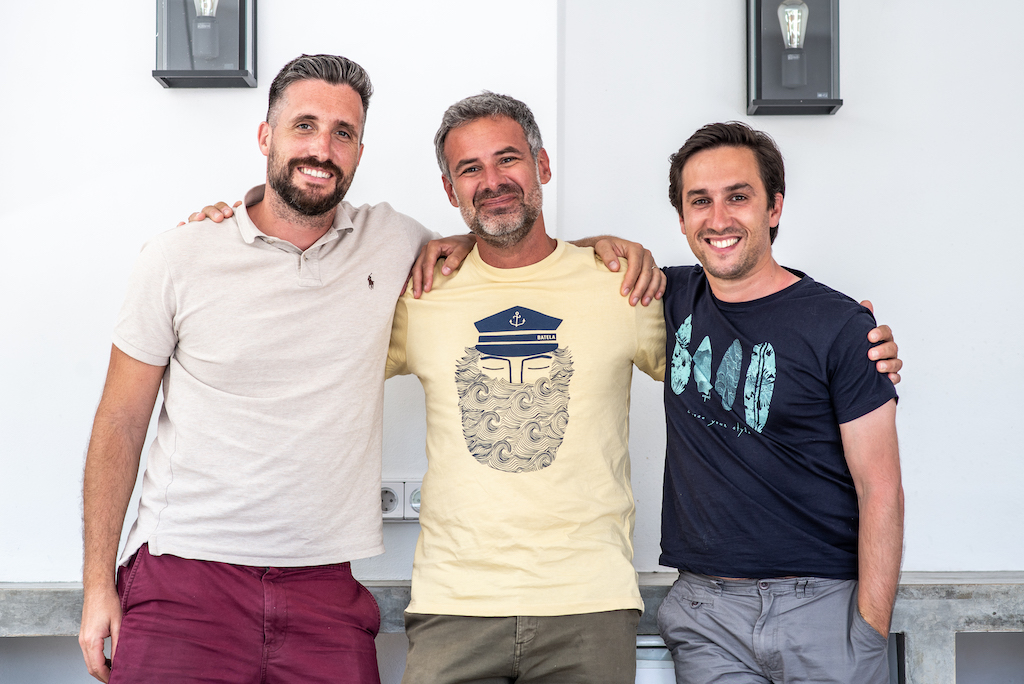EU4UA launches an employment section to help Ukrainian refugees become financially independent in their host country
So far, more than 40,000 job seekers and more than 130 companies offering more than 4,000 jobs have joined the pan-European platform.
The goal of the service is to deconstruct the prejudice that refugees are “unskilled workers” and a “burden”.
The EU4UA platform is a non-profit initiative launched by the #HRTech founders of Jobgether.
After helping Ukrainian refugees find emergency accommodation, EU4UA is launching a “jobs” section to help them achieve financial independence in their host country and help bridge the skills gap in Europe.
So far, more than 40,000 job seekers and over 300 companies offering more than 4 000 jobs have joined the pan-European job section, which was launched on June 1st and is accessible on the EU4UA website. Initially, the new service will focus on France, Spain, and the United Kingdom, as these are the countries where the demand for skilled workers is currently higher.
EU4UA is managed by a hybrid team of 10 employees and 30 volunteers from all over Europe and funded by donations from organizations such as TED, as well as by individual contributions. Members of the technology ecosystem such as Google, Slack, Sendinblue, Airtable, Crisp, Ads for Change, ThirdEyeMedia and Toucan Toco have contributed to the project by offering free or discounted services.
The employment section was developed based on a survey of 3,000 Ukrainian refugees registered on the EU4UA platform, who specified their needs and preferences, in direct response to community needs.
According to our data, 85.6% of refugees are women. With this in mind, we decided to offer mainly jobs that are suitable for them.
explains Arnaud Devigne, co-founder of EU4UA.
The sectors in which refugees want to work include hospitality, food service, human services, cleaning, sales, beauty, agriculture, manufacturing, marketing and public relations, education, IT, healthcare, human resources, and engineering.
Most of the registered refugees were working in office jobs in Ukraine, and 57% of them had sufficient English skills. About 70% of the refugees prefer to obtain a permanent contract and full-time employment.
Although many refugees are skilled workers, the urgency of the situation and the language requirements in the labor market may force many of them to accept lower-level jobs.
Devigne laments.
He also says that the goal of the EU4UA employment service is to deconstruct the prejudice that refugees are “unskilled workers” and a “burden”.
In order to facilitate the job search, EU4UA publishes job descriptions in Ukrainian and Russian and provides special filters that allow for a more targeted search.
Due to the crisis situation and the current needs of the refugees, most of the jobs advertised are manual jobs. Nevertheless, EU4UA is working with businesses and employers to make more office jobs available.
To achieve this, we need the support of small and large companies, especially those operating in the technology sector. Employers need to be more relaxed with their requirements and be more sensitive to the needs of Ukrainians.
says Juan Bourgeois, another co-founder of EU4UA.
Juan Bourgeois adds that, since the Ukrainian refugees now have the right to reside and work in the European Union for up to three years, companies that need skilled workers should take advantage of this opportunity.
“n the hospitality sector, for example, there is a high demand for Ukrainian or Russian speaking workers. EU4UA can help address the skills shortage in Europe on a larger scale and in a more sustainable way than NGOs, and across the continent, not just locally. This would benefit both refugees and companies.
says Bourgeois.
Companies can post jobs for free.
It only takes a few minutes to post a job, and our interface is very easy to use. By joining EU4UA, employers gain access to a diverse pool of untapped talent who are relocation-ready and immediately available, and who share the same European cultural heritage. At the same time, they are creating a positive impact by putting technology to good use.
continues Bourgeois.

According to Devigne, the employment section is an excellent complement to the emergency housing solution offered by EU4UA, as it allows refugees to find housing instead of waiting for employers to offer it. In turn, employers can list on EU4UA the accommodations they have available for refugees to maximize their impact.
So far, 88,500 people have registered to use the emergency accommodation service, and 23% of them have already found European hosts through EU4UA. Every day, more than 3,300 users visit the platform and hundreds of new refugees join it.
To date, 18,348 European families have created their accounts in EU4UA. Most hosts are in France (7,362), the United Kingdom (3,529) and Spain (3,051), followed by Germany (1,036), Benelux (1,031) and Italy (785).
The long-term goal for the emergency shelter service is to establish clearer criteria and make the service more transparent.
says Devigne.
The biggest challenge, he says, is not to let the unresolved Ukrainian crisis fall into oblivion.
To turn this crisis into an opportunity, we need to keep the story of Ukraine in people’s minds.
adds Devigne.
He goes on to say that the EU4UA platform wants to have a deep and lasting impact during this crisis and possible future crises, especially on the European labour market.

0 comments